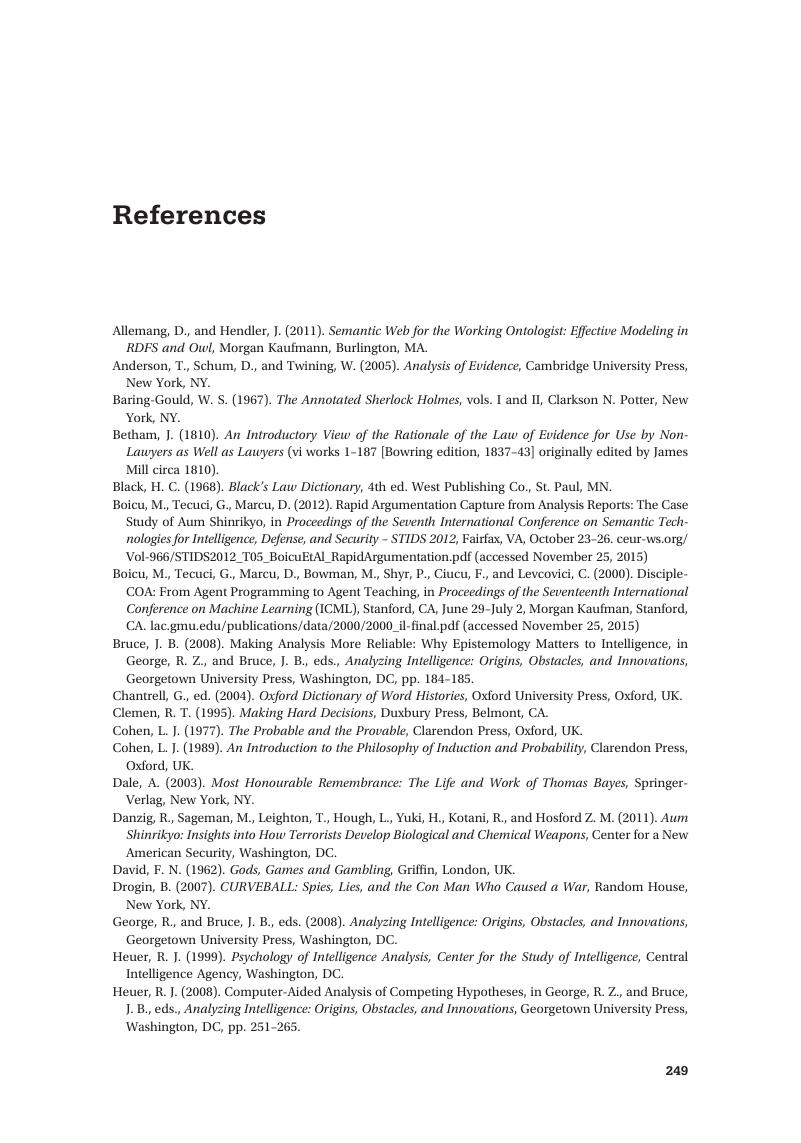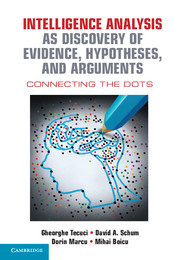Book contents
- Frontmatter
- Contents
- Preface
- Acknowledgments
- About the Authors
- 1 Intelligence Analysis: “Connecting the Dots”
- 2 Marshaling Thoughts and Evidence for Imaginative Analysis
- 3 Disciple-CD: A Cognitive Assistant for Connecting the Dots
- 4 Evidence
- 5 Divide and Conquer: A Necessary Approach to Complex Analysis
- 6 Assessing the Believability of Evidence
- 7 Chains of Custody
- 8 Recurrent Substance-Blind Combinations of Evidence
- 9 Major Sources of Uncertainty in Masses of Evidence
- 10 Assessing and Reporting Uncertainty: Some Alternative Methods
- 11 Analytic Bias
- 12 Learning and Reusing Analytic Expertise: Beyond Disciple-CD
- Glossary of Terms
- References
- Appendixes
- Index
- References
References
Published online by Cambridge University Press: 05 August 2016
- Frontmatter
- Contents
- Preface
- Acknowledgments
- About the Authors
- 1 Intelligence Analysis: “Connecting the Dots”
- 2 Marshaling Thoughts and Evidence for Imaginative Analysis
- 3 Disciple-CD: A Cognitive Assistant for Connecting the Dots
- 4 Evidence
- 5 Divide and Conquer: A Necessary Approach to Complex Analysis
- 6 Assessing the Believability of Evidence
- 7 Chains of Custody
- 8 Recurrent Substance-Blind Combinations of Evidence
- 9 Major Sources of Uncertainty in Masses of Evidence
- 10 Assessing and Reporting Uncertainty: Some Alternative Methods
- 11 Analytic Bias
- 12 Learning and Reusing Analytic Expertise: Beyond Disciple-CD
- Glossary of Terms
- References
- Appendixes
- Index
- References
Summary

- Type
- Chapter
- Information
- Intelligence Analysis as Discovery of Evidence, Hypotheses, and ArgumentsConnecting the Dots, pp. 249 - 254Publisher: Cambridge University PressPrint publication year: 2016



